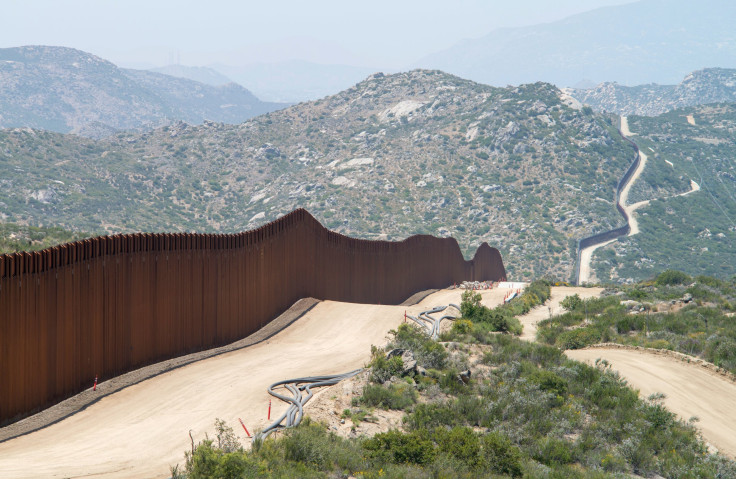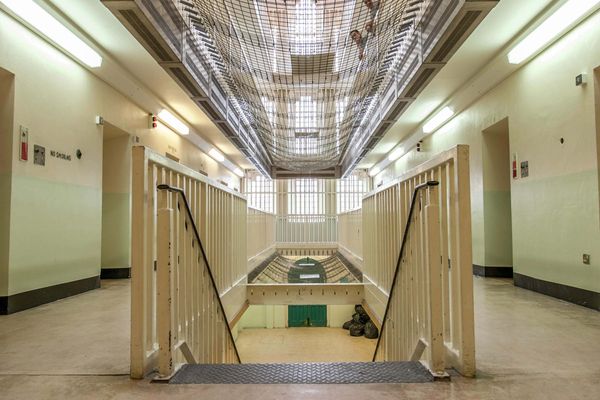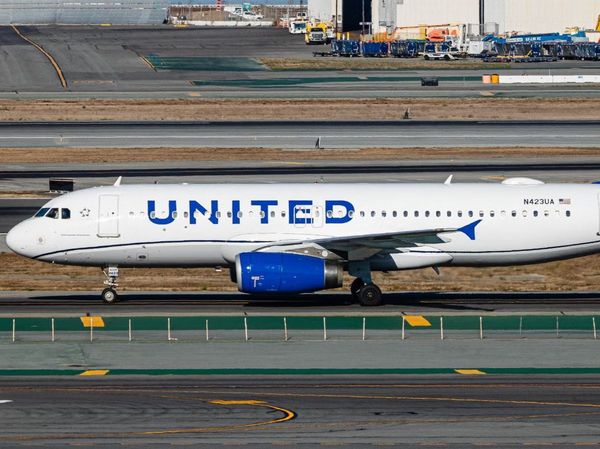
The surge of migrants at the southern border is significantly reshaping the political landscape as the upcoming presidential election looms large. In a departure from traditional electoral priorities, immigration has taken center stage for many voters, surpassing even economic concerns.
The Wall Street Journal added to the growing literature on the issue, highlighting its salience with a new poll that shows it will be a key factor for many at the time of casting a ballot.
The shift, the analysis shows, is particularly pronounced among independent and Republican voters, signaling a growing apprehension about the consequences of illegal border crossings and Washington's perceived failure to address the issue effectively.
65-year-old Garfield Cousins, an independent voter residing in an Atlanta suburb, told the outlet that the sustained influx of migrants is a decisive factor in his presidential election decision-making process.
While the economy has historically been his top priority at the ballot box, the escalating situation at the southern border has prompted a notable change in perspective. Cousins emphasizes the economic ramifications of the migrant surge, citing the strain on taxpayer resources as cities grapple with housing, food, and healthcare costs associated with accommodating the influx.
Cousins' assessment is illustrative of the importance of perceptions, as numerous studies have shown that increased immigration is boosting the labor market without stoking inflationary pressures, and is set to inject a staggering $7 trillion into the gross domestic product over the next decade, according to the Congressional Budget Office.
However, as unlawful crossings dominate the public conversation, polls underscore the growing significance of immigration as a electoral issue. A Wall Street Journal national poll conducted in late February revealed that 20% of voters now rank immigration as their top concern, a substantial increase from 13% in December. Moreover, dissatisfaction with President Biden's handling of border security is widespread, with 65% of voters expressing disapproval.
But the impact of immigration extends beyond economic concerns, with voters increasingly worried about its implications for crime, drug trafficking, and national security. Denise Hodgkins, a 56-year-old Republican from Dalton, Ga., emphasized the multifaceted nature of the issue, highlighting its ripple effects on various aspects of American life.
It used to be such a great thing to come to America and dig right in, and make a living for yourself, find things, learn the language, assimilate into this country," she told the WSJ. "And I just don't know that the people are proud anymore to be here. Come on, this country wasn't built on handouts." Again perceptions play a key role, as different studies have shown immigrants have a lower tendency to commit crimes than Americans.
Despite acknowledging reservations about former President Trump's rhetoric (saying immigrants are "poisoning the blood of our country") Cousins, an immigrant from Jamaica, believes Trump would manage the border more effectively than Biden. Recent high-profile criminal cases involving migrants living in the U.S. illegally, like the murder of Georgia nursing student Laken Riley, have further heightened concerns, with Trump attributing such incidents to Biden's policies.

A large percentage of the population agrees with this assessment, with recent polls suggesting widespread dissatisfaction with the administration's handling of the border situation. Democrats like Asher Bejar, a 20-year-old college student from Allentown, Pa., advocate for a balanced approach, combining opportunities for legal immigration with enhanced border enforcement.
However, the blame game between Democrats and Republicans over the border crisis continues unabated. Despite Biden's attempts to address concerns, such as proposing bipartisan agreements and criticizing their counterparts for backing down on the issue, convincing voters of Republican responsibility remains an uphill battle.
Residents near the border, like Mike Orcutt, a 62-year-old Republican from Marana, Ariz., said they witnessed firsthand the impact of increased migration on drug use and homelessness, leading to heightened local concerns. Despite Biden's attempts to address the issue, criticism persists, with voters perceiving insufficient leadership and prioritization of border security in his agenda.
However, Biden still has many months to change perceptions, and his administration has been taking measures with this purpose. In fact, the amount of migrants apprehended at the U.S. southern border surprisingly fell in March, with officials crediting enforcement actions by the Mexican government as a key factor, CBS News reported on Thursday.
Concretely, Border Patrol agents encountered over 137,000 people crossing the border unlawfully during the period. Even though it's a dip compared to February's 141,000, the figure becomes more significant as seasonal trends pointed at a surge during the period.
The outlet reported that it's the first time in seven years and the only one during the Biden administration when apprehensions fall from February to March.
© 2024 Latin Times. All rights reserved. Do not reproduce without permission.







